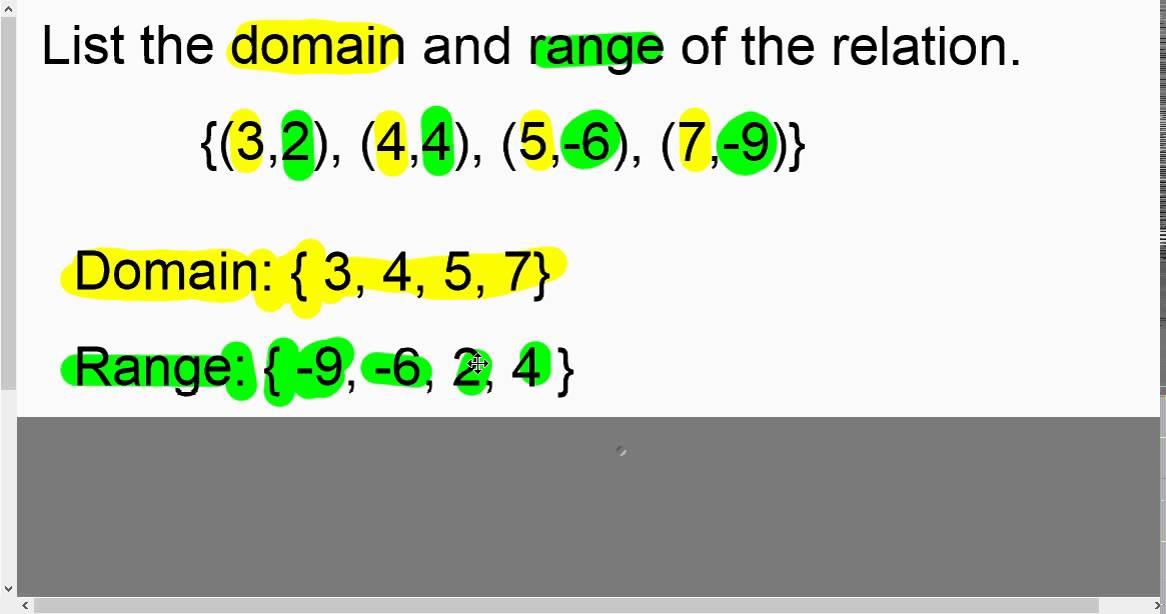Table of Contents
- Understanding the Domain Market and Its Value
- Choosing the Right Domain Name for Sale
- Effective Strategies to Promote Your Domain Listing
- Navigating Sales Platforms for Maximum Exposure
- Tips for Negotiating Domain Sales Successfully
- Q&A
- Wrapping Up


Understanding the Domain Market and Its Value
The domain market is an ever-evolving landscape that reflects the current digital economy’s health and potential growth opportunities. As more businesses migrate online, the demand for memorable and relevant domain names continues to rise. Understanding the intricacies of this market is crucial for anyone looking to buy or sell domains. Sellers must consider factors such as SEO value, brandability, and length when evaluating their domains. Additionally, the perceived value often hinges on the current market trends, making it essential for sellers to stay informed about industry developments.
One of the primary assets in the domain marketplace is the concept of brand equity. Domains that are short, easy to spell, and resonate with a target audience generally command higher prices. When selling a domain, it is beneficial to analyze comparable sales to gauge what similar domains have fetched. For instance, premium domains can sell for thousands or even millions of dollars, especially if they contain popular keywords or are geographically targeted. Key considerations for determining value include:
- Keyword strength: Domains enriched with high-traffic keywords often draw more interest.
- Domain age: An established domain can inherently possess more authority in search engine rankings.
- Extension choice: While .com remains the gold standard, other extensions like .io and .co are gaining traction.
Understanding the marketplace also requires recognizing the sales channels available. Platforms such as auctions, listings on brokerage sites, and direct negotiations are common avenues for domain transactions. Each approach has its advantages, but selecting the right one can make a significant difference in getting the desired price. Below is a brief overview of popular selling platforms, highlighting their unique features:
| Platform | Features |
|---|---|
| GoDaddy Auctions | Large audience; user-friendly interface; promotional tools available. |
| Sedo | International reach; domain appraisals; escrow services. |
| Flippa | Also supports website sales; various listing options; active bidding environment. |
Choosing the Right Domain Name for Sale
When venturing into the domain resale market, selecting a memorable and impactful domain name is crucial. A well-chosen name can significantly enhance your chances of making a lucrative sale. Begin by considering the keywords that resonate within your target market. This ensures that your domain not only appeals to buyers but also ranks well in search engine results. It might be beneficial to brainstorm names that are descriptive yet succinct, adhering to the principle that less is often more.
Another aspect to consider is the domain extension. While .com remains the most recognized and trusted extension, there are numerous alternatives that can also generate interest. Extensions like .net, .org, and industry-specific options such as .tech or .store can lend credibility and suggest relevance for particular niches. Here’s a quick comparison of popular domain extensions:
| Extension | Best For | Notes |
|---|---|---|
| .com | General Use | The most trusted and recognized by users |
| .org | Nonprofits | Suggests a reputable organization |
| .net | Networks and IT | Alternative to .com |
| .tech | Technology Companies | Appeals to tech-savvy audiences |
Lastly, while creativity is essential, it’s equally important to ensure that your domain is easy to spell and pronounce. Avoid complex words or unusual spellings that could confuse potential buyers. Additionally, check for existing trademarks to prevent legal hassles. A domain that captures attention and is simple to remember will not only facilitate easier marketing but also increase its perceived value among potential buyers. By following these guidelines, you’ll be well on your way to selecting the perfect domain name for resale.


Effective Strategies to Promote Your Domain Listing
Promoting your domain listing effectively involves leveraging multiple channels and strategies to reach potential buyers. One of the most successful tactics is to optimize your online presence. This means ensuring that your domain listings are featured on reputable platforms where domain buyers are likely to browse. Websites like Dan.com are excellent starting points. Furthermore, utilizing social media platforms such as Facebook, Instagram, and Twitter can create buzz around your listings by sharing appealing visuals and informative content.
Another powerful strategy is content marketing. Creating engaging, informative blog posts, videos, or infographics about domain investment trends can help establish your authority in the field. You might want to consider writing detailed articles emphasizing the value of owning a particular domain or case studies that highlight successful purchases. Incorporating these into your website not only enhances SEO efforts but also attracts visitors interested in purchasing domains. Additionally, utilizing email marketing campaigns to promote your listings to a targeted audience can significantly increase visibility and engagement.
Lastly, don’t underestimate the power of search engine optimization (SEO) specific to your listings. By including relevant keywords related to your domain in titles, descriptions, and meta tags, you can improve the chances of your listings appearing in search results. Creating a well-designed table showcasing multiple domains can further grab attention. Here’s a simple way to structure it:
| Domain Name | Price | Features |
|---|---|---|
| ExampleDomain1.com | $1,000 | Short, memorable |
| ExampleDomain2.com | $500 | SEO-optimized |
| ExampleDomain3.com | $2,500 | Highly brandable |


Navigating Sales Platforms for Maximum Exposure
When it comes to listing your domain for sale, choosing the right platform is crucial for achieving maximum visibility. Various sales platforms cater to different audiences and niches, which means finding the right match can significantly influence your sale success. Some platforms specialize in premium domains, while others have a broader audience, accommodating various types of buyers. Here are some popular options to consider:
- GoDaddy Auctions: Renowned for its extensive user base, GoDaddy Auctions provides a robust marketplace for sellers to list their domains.
- Sedo: This international platform offers a wide reach and supports multiple languages, making it ideal for sellers targeting global buyers.
- Flippa: Known for not just domain names but a variety of digital assets, Flippa attracts buyers looking for established online businesses.
Once you’ve chosen your platform, optimizing your domain listing is essential for attracting potential buyers. Consider the following tips:
- Craft a Compelling Description: Clearly articulate the value of your domain, highlighting keywords and its potential use cases.
- Set a Fair Price: Research similar domain sales to benchmark your pricing, ensuring it reflects both market demand and your domain’s worth.
- Utilize Negotiation Features: If available, leverage the platform’s negotiation tools to engage with interested buyers directly.
| Platform | Key Feature | Best For |
|---|---|---|
| GoDaddy Auctions | Large customer base | Seasoned domain investors |
| Sedo | Multi-language support | International sellers |
| Flippa | Diverse digital asset market | Entrepreneurs and buyers |


Tips for Negotiating Domain Sales Successfully
When it comes to securing a favorable deal in domain sales, preparation is critical. Start by conducting thorough research on comparable domain sales within your niche. Understanding the market value of your domain can provide significant leverage during negotiations. Utilize resources like domain appraisal tools and marketplace sales data to gauge what similar domains have sold for recently. This knowledge not only affirms your asking price but also enables you to justify your position to potential buyers.
Effective communication is paramount in negotiations. Aim to establish a rapport with the buyer, as a personal connection can often lead to better outcomes. Use open-ended questions to assess their needs and motivations, allowing you to tailor your pitch accordingly. Ensure your negotiations are conducted with clarity; avoid jargon that may confuse the buyer. You might want to consider employing techniques such as:
- Active listening: Pay attention to the buyer’s comments to better understand their concerns.
- Flexibility: Be prepared to offer alternative options or payment structures, such as installment plans.
- Patience: Don’t rush the negotiation process; allow the buyer to take their time to consider your proposal.
Documenting the agreed terms is essential for a smooth transaction. Make sure to create a simple contract that outlines the sale conditions, including the domain transfer process, payment methods, and deadlines. A well-structured agreement minimizes misunderstandings and provides a reference point for both parties. Below is a simple table that outlines key elements to include in your sales agreement:
| Item | Details |
|---|---|
| Domain Name | YourDomain.com |
| Sale Price | $X,XXX |
| Payment Method | Bank Transfer/PayPal |
| Transfer Date | MM/DD/YYYY |
Q&A
Q&A: Selling Domain Names – Your Guide to Turning a Profit Q: What are domain selling sites? A: Domain selling sites are online platforms where individuals and businesses can list their domain names for sale. These sites typically allow sellers to reach a wider audience of potential buyers who are looking for a memorable or relevant domain for their online presence. Examples include Sedo, GoDaddy Auctions, and Flippa.Q: How can I determine the value of my domain name? A: The value of a domain name can be assessed based on several factors, including its length, keyword relevance, extension (.com, .net, etc.), market demand, and similar sales history. Tools like Estibot or GoDaddy’s domain appraisal service can provide insights, but it’s also wise to consider what a potential buyer might be willing to pay.
Q: What makes a domain name desirable to buyers? A: Desirable domain names are usually short, easy to spell, and memorable. They often incorporate popular keywords associated with specific niches or industries. Additionally, a .com extension is typically preferred, as it is the most recognizable and trusted by users.
Q: Are there any fees associated with selling domains? A: Yes, most domain selling platforms charge fees, which can include listing fees, transaction fees, or a percentage of the sale price. It’s important to read the terms and conditions of each platform to understand their fee structure before listing your domain.
Q: How can I effectively market my domain name? A: To effectively market your domain name, consider creating a compelling listing that highlights its strengths and potential uses. Sharing your domain on social media, forums, or niche-specific groups can help attract interest. Additionally, optimizing keywords in your listing can improve visibility on search engines.
Q: Should I negotiate the price when selling my domain? A: Absolutely! Negotiation is a common part of the sales process when selling domain names. Be prepared to justify your asking price with evidence of value and be open to fair offers. Understanding the buyer’s perspective can help you reach a mutually beneficial agreement.
Q: What are some common pitfalls to avoid when selling domains? A: One major pitfall is overpricing your domain name. Educate yourself about current market trends and recent sales to set a realistic price. Also, be wary of using unclear or unprofessional language in your listings, as this can deter potential buyers. Lastly, avoid getting discouraged; selling domain names can take time!
Q: Can I sell my domain names through multiple sites at once? A: Yes, you can sell your domain names on multiple sites simultaneously, but it’s crucial to monitor sales across those platforms. Some platforms may not allow it, so always check their policies. If a domain sells on one site, promptly remove it from others to avoid complications.
Q: Is there a best time to sell a domain name? A: The best time to sell a domain can vary. Generally, consider selling during peak web development seasons, such as before the new year or during the spring when many businesses look to refresh their online presence. Additionally, keeping an eye on emerging trends can help identify ideal timing opportunities.
Whether you’re a seasoned seller or just starting out, understanding the nuances of selling domain names can enhance your chances of success. Happy selling!

